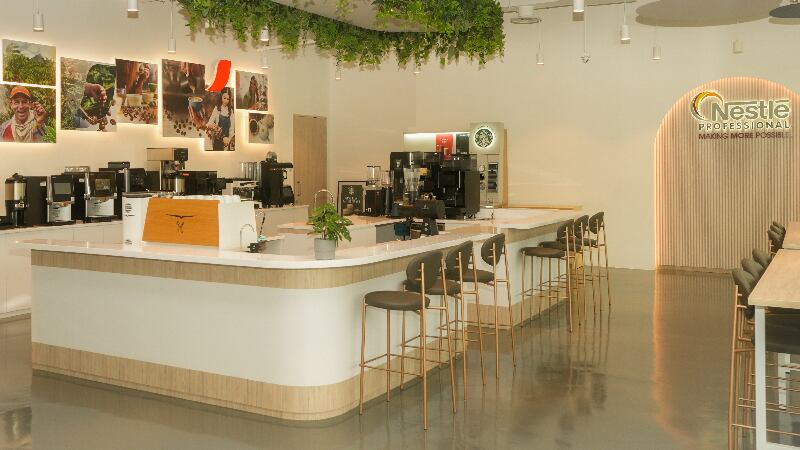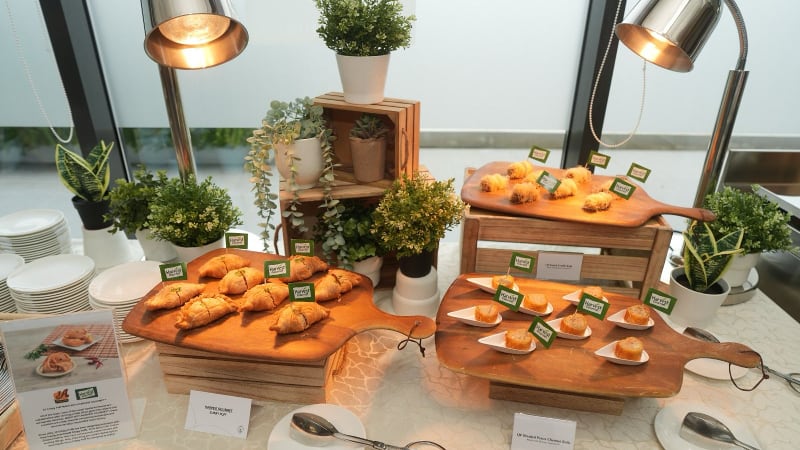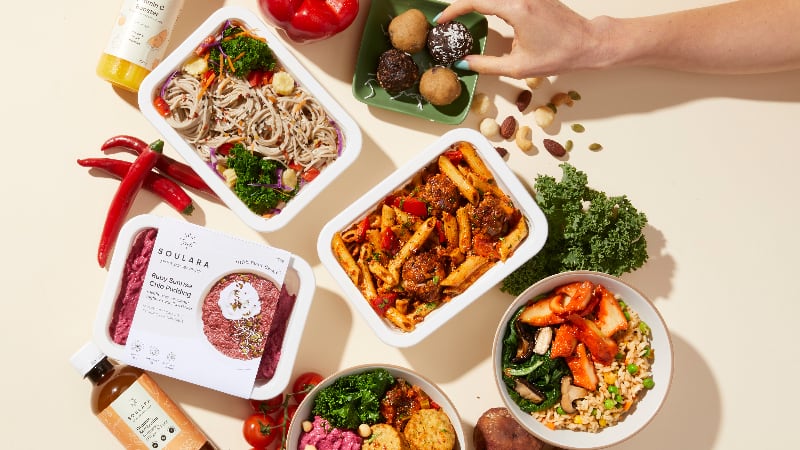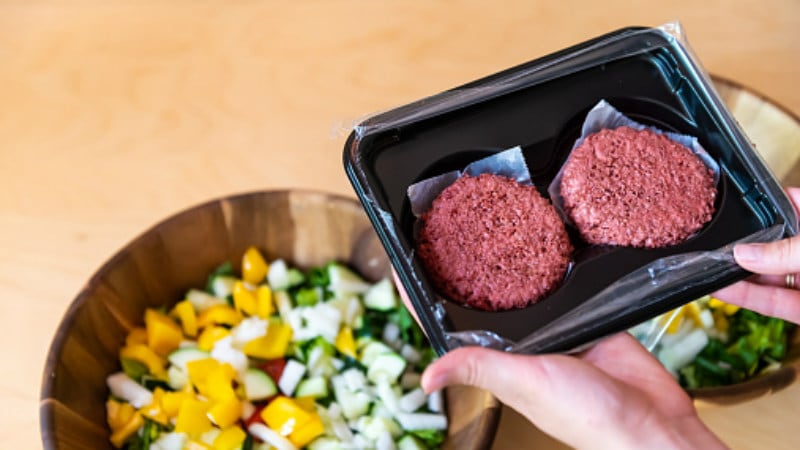Drawing on nearly 150 years of expertise and a vast global R&D network, Nestlé Professional serves various sectors of the food and beverage industry to meet the evolving needs of consumers and businesses.
A constant focus area of innovation for the firm is sustainability, where efforts span ingredients sourcing and manufacturing to packaging and delivery of products to the end consumer. It also has a range of plant-based products under the brand HARVEST GOURMET.
“Sustainability is a priority for every FMCG company. While the plant-based business is a huge focus for us, sustainability is not just about meat alternatives. At the same time, we have to be realistic about consumer needs. We see that in Singapore specifically and generally in Asia, the appetite for meat replacement is limited. There are already many nice alternatives, such as soy products.
"It’s more about raising awareness. We work hand in hand with institutions and chefs, telling them that it’s relevant to have these options on their menu. It’s going to take a long time to change consumption behaviour, but by increasing access, we could slowly change the way people consume,” said Paul Nagelkerken, Country Business Manager at Nestlé Professional Singapore.
He was speaking to FoodNavigator-Asia at the launch event of Nestlé Professional’s first Customer Engagement Centre (CEC) in Singapore on January 31.
“Globally, consumers are conscious about making choices that have a sustainable element. During economic slowdown, like what we’re facing today, [the demand for] sustainability may be a little less, but it is still there and it’s not going to go away. As inhabitants of the earth, we will and have to increasingly switch to meat-free options.
“However, people are struggling to find food choices that are both indulgent and good for the planet. If those who have had bad experiences are stuck with the mindset that plant-based products are not tasty, it’s not going to help them make that transition. That is why a lot of companies, including us, are working on alternatives that give consumers a better experience.”
Rather than emphasising keywords like plant-based, Nagelkerken believes that a “more modest approach” should be adopted.
“What we are starting to understand is that we need to remove the whole deliberate plant-based notion and find a way that fits consumer needs in a natural manner. Telling people that ‘you have to eat sustainably’ doesn’t work. There should be more focus on good-tasting products that offer a real alternative, so people would start choosing these options [on their own accord].
“For example, instead of marketing a truffle roll dim sum as a meat-free or a meat-replacement product, it should simply be sold as a truffle dim sum. If people like it after trying, they will buy it without being conscious [about the plant-based label].”
Speaking on the state of plant-based development, he compared it to the Internet in the 1990s.
“When the Internet first launched, there was a lot of interest because everyone was curious. But as it wasn’t user-friendly and wasn’t yet 100% of what people were looking for, it experienced a dip in usership. Today, it has gone through the roof.
“We have to better understand human nature to come up with improved, tasty alternatives that people enjoy eating. And if these happen to also be good for the environment, then it’s fantastic — we hit two birds with one stone.
“For any player that’s pessimistic [about plant-based development], due to financial reasons or the fact that the sector is moving slowly, I’d say the future is extremely exciting. There is a generation of consumers coming up that is very open to this, and our learnings can only help us get the story right. It’s about the long-term results. We’ll figure it out as an industry and we’ll get there.”

Providing tools to thrive
Nestlé Professional has been operating CECs across its global markets for more than a decade, with China being the first. Its latest facility in Singapore aims to address key industry challenges, including the continuous pursuit of sustainable practices, manpower crunch, and rising costs.
“It’s a model that has proven to be successful. Customers appreciate the ability to experience our comprehensive range of solutions in a setting that simulates an actual operational environment, which makes it more tangible and easier to understand.
“The opening of this new CEC marks a significant shift from merely selling products to actively contributing to the growth of food service and hospitality businesses in Singapore. We get into the core of what our customers do, helping them to bring products to market faster and in more affordable ways, as well as increase their margins. Our ultimate aim is to establish more long-term loyal partnerships,” said Nagelkerken.
Run by a team consisting of an in-house chef and barista, the CEC could improve cost-effectiveness and operational efficiencies in various ways. For one, it reduces the amount of time and manpower required for R&D, which can be costly and lengthy.
“It’s not always about the cost of ingredients. We strive to make it easier for our customers to deliver their products, such as coffee, with consistent quality. As access to skilled labour can be challenging, we offer solutions that are easy to use and result in less wastage.
“We are also able to relieve companies’ operational burden by working directly with their OEM partners to pre-identify a product that has been fine-tuned to be feasible.”
Additionally, the CEC comprises a kitchen and a bar area, where product training, tastings and demonstrations, and innovations take place. These include customised applications, menu and recipe development, and product diversification.
Armed with professional-grade equipment, the kitchen provides a realistic and immersive experience. It also facilitates the integration of Nestlé products, such as KITKAT and MILO, into food innovations under the “Made With” concept.





